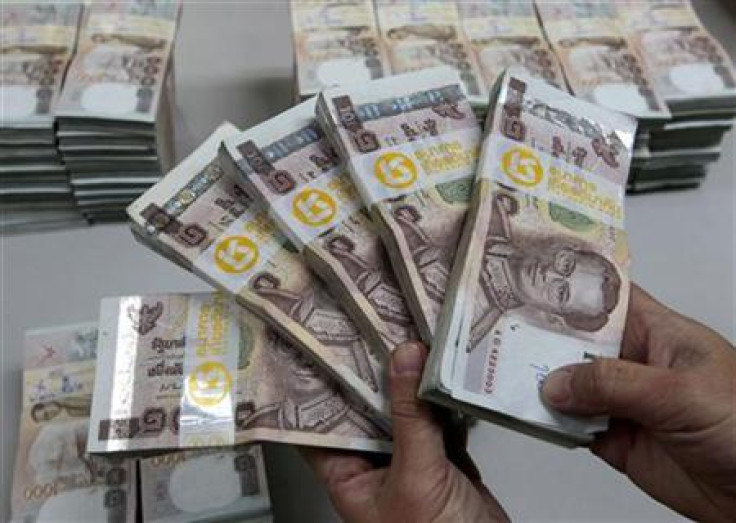Thai baht slumps to new 6-year low as industrial sentiment dampens, stocks slide

The Thai baht has fallen to a new multi-year low on 22 July as the drop of an industrial sentiment index highlighted increasing concerns over the economy as well as spreading drought.
USD/THB soared to 34.67, its highest since May 2009, translating to a 0.7% decline in the baht on the day. The broad dollar weakness failed to prevent the baht's plunge.
The FTSE SET index, the benchmark share index of the country, has fallen to a 13-month low on 21 July, increasing outflow concerns weighing further down on the baht.
The currency of southeast Asia's second largest economy has been on a rout since March and has fallen more than 5% against the dollar so far this year.
The Thai Industries Sentiment Index fell to 84.0 in June from 85.4 in May, data showed on 21 July. It was the sixth straight fall, according to the Federation of Thai Industries.
Thai authorities are of the view that the currency's decline has been a boon for the export-driven economy.
The central bank governor Prasarn Triratvorakul said on 20 July that the bank has no target for the baht and the fall now happening is in fact a correction.
Earlier last week, the deputy prime minister of the country Pridiyathorn Devakula also said he would like to see the baht depreciate a little more.
The Bank of Thailand had slashed the main interest rate twice this year in surprise moves taking it to a low of 1.5%. It is now very close to the record low of 1.25%.
The central bank has also lowered its forecast for economic growth for this year to 3.0% from 3.8% as export demand has weakened.
If exports contract this year, it will be a third straight year of contraction, for the economy which has two third of the GDP fed by exports.
© Copyright IBTimes 2024. All rights reserved.






